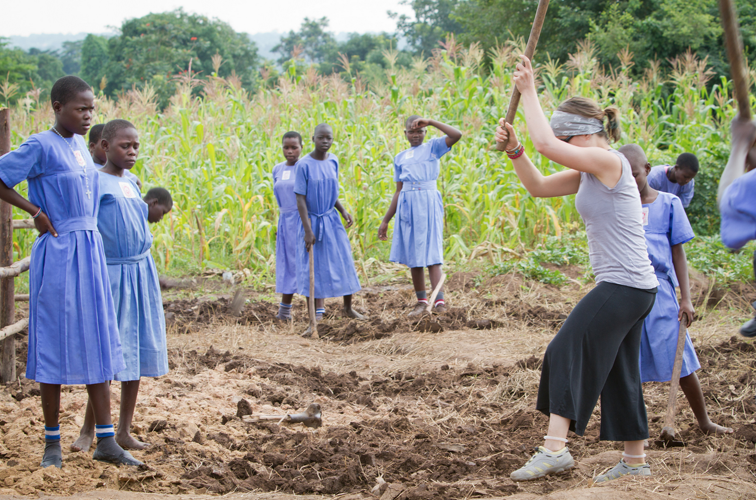Radio show features philanthropic deeds

The Intentional Traveler interview with Far-Flung Travels highlights work with Drink Local Drink Tap in Uganda
 Canadian Michael McCarthy has been covering the topic of philanthropic travel for nearly 20 years and is currently in the second season of his radio show “The Intentional Traveler.” He says, “we are all ambassadors for our own cultures and our own selves. Intentional travelers consciously wander the world with the goal of meeting other people and trying to leave the planet a better place. The goal is to acquire techniques leading to conscious awareness during life’s journey, and to share them with other travelers. In the end, the journey is to find our highest self.”
Canadian Michael McCarthy has been covering the topic of philanthropic travel for nearly 20 years and is currently in the second season of his radio show “The Intentional Traveler.” He says, “we are all ambassadors for our own cultures and our own selves. Intentional travelers consciously wander the world with the goal of meeting other people and trying to leave the planet a better place. The goal is to acquire techniques leading to conscious awareness during life’s journey, and to share them with other travelers. In the end, the journey is to find our highest self.”
On December 22, 2012, he sat down with me and Erin Huber, director of Drink Local Drink Tap, to talk about global water issues and what we’ve been doing about it in Uganda and how we made it happen. Listen to it here:
For more radio show episodes, visit the Apple’s iTunes store.
How I got involved in making a documentary film that highlights philanthropic efforts abroad
It takes more than a village in Uganda without water to make a documentary film. As it turns out, it also requires about two years of work, 7,000 miles, 38,500 milligrams of malaria medication, countless volunteer hours and generous portions of mashed bananas three times per day. At least that’s what I discovered while creating “Making Waves: From Cleveland to Uganda,” which will premiere in March. The documentary follows Erin Huber, director of Drink Local. Drink Tap., as she works toward her goal of striking “water gold” in Africa.
As soon as Erin told me about her plan to raise funds for a water source in Uganda, I knew I wanted to do something to help, so I hinted that I could help her document the story through photography and film to help put a face on the global water issue. Together, we enlisted the help of LESS Productions’ Tom Kondilas, an experienced feature-length filmmaker.
Living in the first world, it’s hard to imagine what people on the other side of the globe are experiencing on a day-to-day basis, but being able to show it to audiences here really puts it all into perspective. You might not think getting a drink of water out of the faucet is a luxury until you see the hours of planning and physical labor involved into doing the same thing in rural Uganda. For 11 weeks over two summers, we walked alongside the school students on their way to the closest water source and even attempted to carry their heavy water containers. It wasn’t easy for us grown adults.
Lack of water may have been the reason we went to Uganda, but we discovered it wasn’t the only obstacle rural Ugandans face everyday. Most of the people of Mulajje are subsistence farmers and had little extra money to pay for the food, fuel and medicine that would make their lives a little bit better. Families have been destroyed by AIDS, malaria and other diseases and many of the students we met were orphaned — some HIV positive.
Despite their overwhelming difficulties, we encountered loving and hospitable people who were willing to offer us what little they had, whether it was fresh mango plucked right from the tree in their yard or a heaping portion of mashed bananas, the staple food consumed at every meal. So, it was gratifying when water finally flowed out of the new water source on school property last June. We may have helped only 600 of the 1.1 billion people without access to water, but hopefully the film will be a platform for inspiring others to take up the cause and help others gain access to life’s most fundamental human need — however they can, wherever they can.
For more information, or to help fund more water projects in Uganda, visit www.drinklocaldrinktap.org.

Write a Reply or Comment